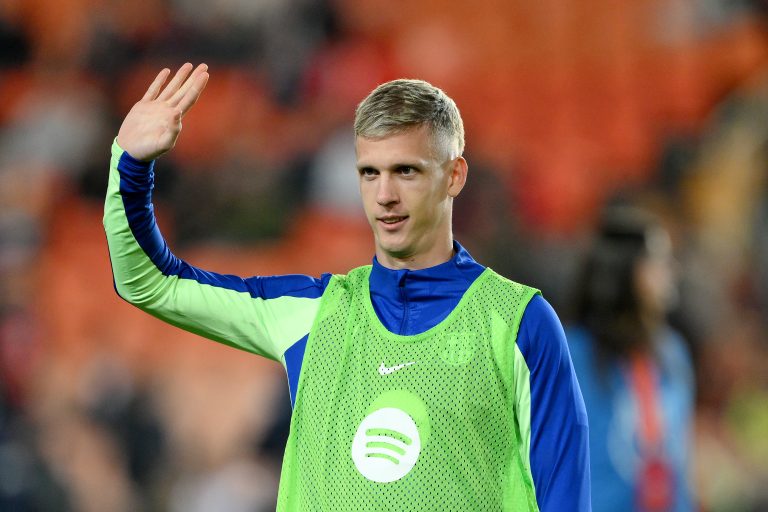
In a groundbreaking move aimed at enhancing athletic performance and minimizing the risk of injury, a Barcelona midfielder has recently undergone a pioneering genetic study. This innovative approach seeks to unlock deeper insights into the player’s genetic makeup, enabling the club’s medical and performance teams to tailor a more personalized training and recovery plan.
The midfielder, whose name remains confidential for now, is the first in the club’s history to participate in this cutting-edge study. The primary goal of the research is to examine the genetic factors that could influence the player’s strength, endurance, recovery time, and injury susceptibility. By understanding these biological markers, the team hopes to make targeted adjustments to training routines, nutrition, and recovery techniques that are specifically suited to the player’s unique genetic profile.
This move aligns with Barcelona’s broader strategy to incorporate advanced science and technology into their operations. In recent years, the club has increasingly relied on data analytics, biomechanics, and other scientific methods to fine-tune the performance of their players. The genetic study takes this approach a step further, leveraging state-of-the-art tools to study not just physical metrics, but also the underlying genetic factors that contribute to athletic success.
The study is being conducted in collaboration with a leading research institute specializing in sports genetics, which has previously worked with top athletes from various disciplines. The data collected from this genetic analysis will provide invaluable insights into muscle composition, injury-prone areas, and the body’s ability to recover after intense exertion. This information will allow Barcelona’s medical staff to design highly customized programs for injury prevention, ensuring that players can avoid common strains and sprains that typically plague professional footballers.
Barcelona’s coaching staff is also eager to learn how the player’s genetics might influence their reaction times, decision-making, and overall performance on the field. In the fast-paced world of top-tier football, even the smallest edge can make a significant difference, and this genetic study could give the midfielder an advantage in both physical and cognitive aspects of the game.
The club is hopeful that this will not be the only such study, with plans to potentially extend this personalized approach to other players in the future. While the long-term impact of genetic studies in sports is still being explored, Barcelona’s commitment to staying at the forefront of sports science suggests that they are preparing to lead the way in this innovative field.
In an age where every detail counts, this study represents just one example of how Barcelona continues to embrace innovation to stay competitive. By focusing on the genetics of their players, the club aims to create the ultimate environment for their stars to excel, stay healthy, and perform at the highest level possible.
As the research progresses, the results will likely serve as a benchmark for other football clubs looking to enhance their players’ performance. With potential applications ranging from injury prevention to optimized fitness, Barcelona’s investment in genetic science could pave the way for a new era in football.
In conclusion, the collaboration between Barcelona and sports genetics specialists marks a significant step forward in the evolution of athletic performance. With its potential to improve individual players’ capabilities and reduce the likelihood of injury, this groundbreaking study could become a model for future sports science developments. As the football world watches closely, the results of this experiment could define the next generation of elite athletes.

